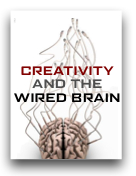W8 a minute, then LOL: Texting is good for you
 Just when you or your favorite school teacher thought there was no way in hell the English language could survive the abomination of text message shorthand, aka textese, a British linguist has thrown a bucket of cold water on the world’s SMS malcontents. David Crystal writes in his new book, Txtng: the Gr8 Db8, that children who use textese score higher on reading and vocabulary tests. WTF?
Just when you or your favorite school teacher thought there was no way in hell the English language could survive the abomination of text message shorthand, aka textese, a British linguist has thrown a bucket of cold water on the world’s SMS malcontents. David Crystal writes in his new book, Txtng: the Gr8 Db8, that children who use textese score higher on reading and vocabulary tests. WTF?
“There’s no evidence that texting damages writing skills; on the contrary, academic studies – as well as creative phenomena such as text poetry – indicate that texters can actually be talented writers,” Mark Peters writes in New Scientist.
Texting, it turns out, is both a window on the forces driving our culture and a means to describe them. It’s also a reminder that language is alive. Shakespeare played with words. Academics and journalists have abused them for years. Now literate creatives rejoice and reflect on the human condition through SMS poetry (Check out OneSixty, the British SMS literary journal).
Lily Huang writes in Newsweek:
Where the naysayers see destruction, Crystal sees growth. He believes in the same theory of evolution for language as some evolutionary biologists do for life: change isn’t gradual. Monumental developments interrupt periods of stasis, always as a result of crucial external developments. The American Revolution had much greater consequences for the English language than texting has had thus far. The resulting differences between American and British English, Crystal says, are more pronounced than the differences between, say, the language of newspapers and text messages.



